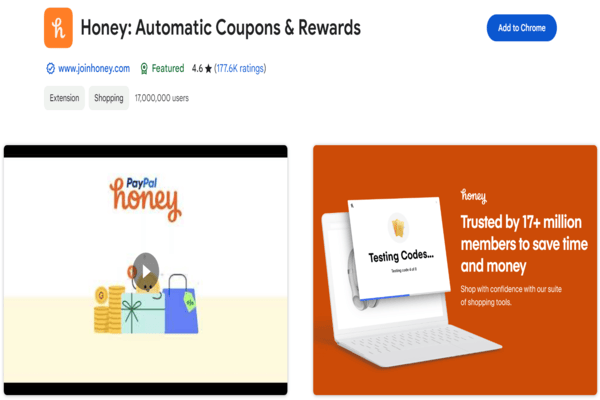Honey, a popular browser extension owned by PayPal, has reportedly seen a significant drop in users following a YouTube video exposing its questionable tactics. In late December, YouTuber MegaLag uploaded a video detailing how Honey allegedly takes advantage of affiliate programs and referral links, deceiving both users and influencers. For context, Honey is a free browser extension designed to help users save money by automatically applying coupon codes when shopping online. However, the video suggests that Honey engages in some shady practices, such as hijacking affiliate links from influencers it collaborates with and working with retailers to control the discounts shown to users.
Since the video’s release, Honey’s user base has reportedly shrunk by around 3 million. As of now, the Chrome Web Store page for the extension lists 17 million users, down from over 20 million before the video dropped. Additionally, a class-action lawsuit has been filed against PayPal over Honey. MegaLag’s investigation revealed that Honey quietly applies its own affiliate referral cookie when users search for discounts. This allows Honey to claim a commission from sales, even when influencers have provided their own affiliate links for the same products.
Affiliate marketing, which is widespread among influencers, typically works by giving creators a unique affiliate link to share with their audience. When a purchase is made through this link, the influencer earns a commission. The system generally operates on a ‘last click’ referral model, where the final referrer gets the credit. However, as MegaLag points out, Honey exploits this by not only applying its own referral cookie, but also replacing cookies from influencers, including those promoting Honey itself. This happens not only when Honey finds discounts but also when users interact with the extension, such as when it pops up during checkout and says it couldn’t find a code. When users click “Okay,” the page refreshes, applying Honey’s referral code. Additionally, Honey uses its points system to apply referral codes.
Even more troubling, Honey allows its retail partners to control which discount codes are displayed, often hiding better deals from users. MegaLag demonstrated that while Honey claimed to find no valid codes, he was able to find working discounts elsewhere. Furthermore, even when Honey did find codes, MegaLag discovered better deals by searching online.
In summary, while Honey advertises itself as a tool for saving money, it appears to prioritize serving discounts approved by retailers and ensures it earns a commission by hijacking affiliate links. MegaLag teased that he would reveal more concerning aspects of Honey in a follow-up video.



